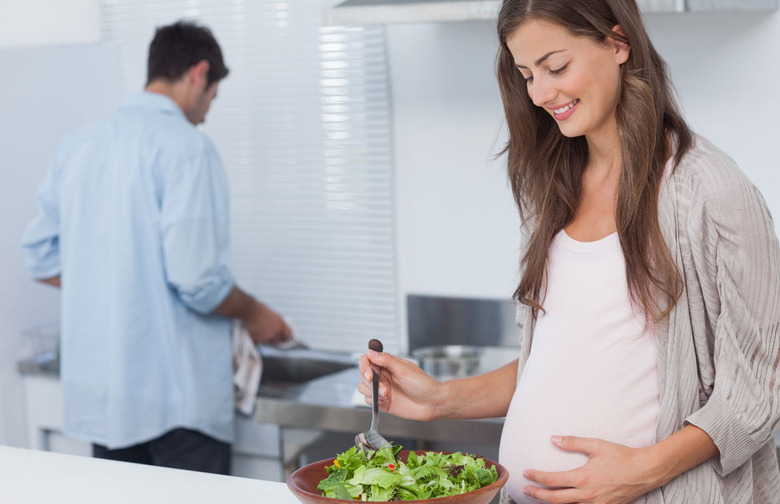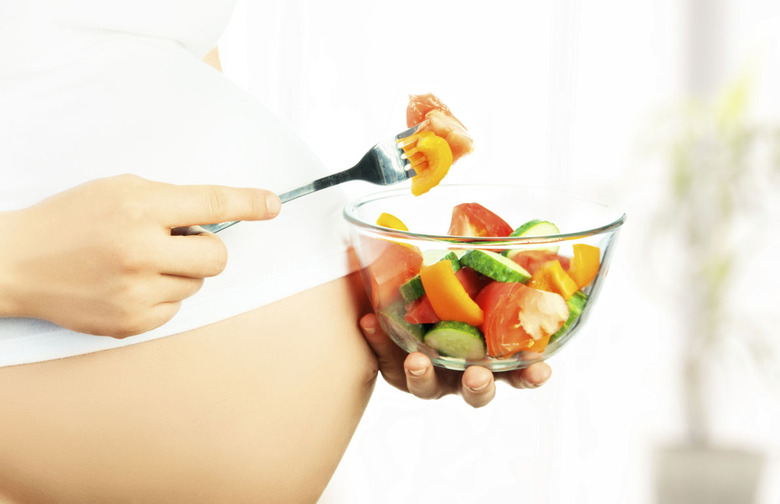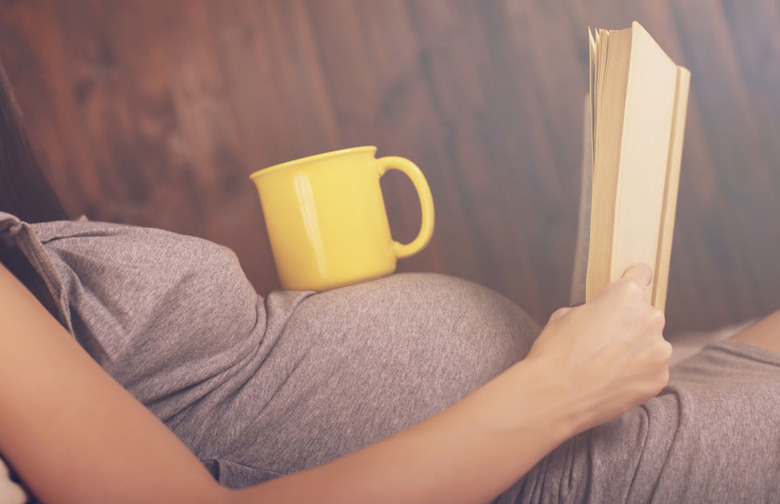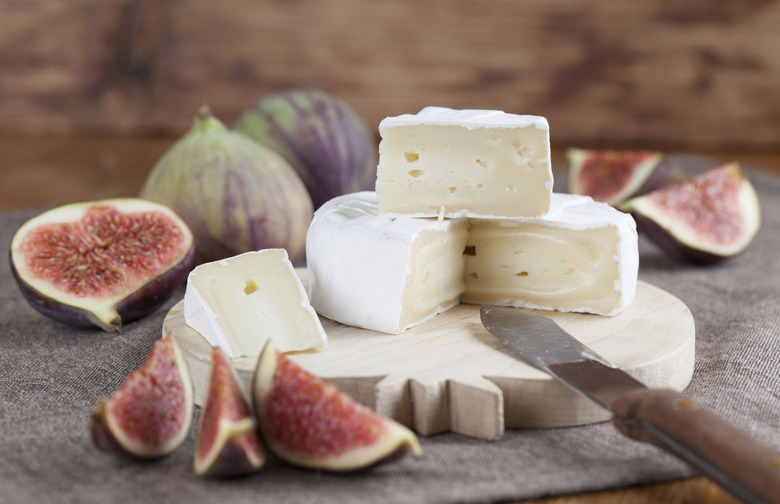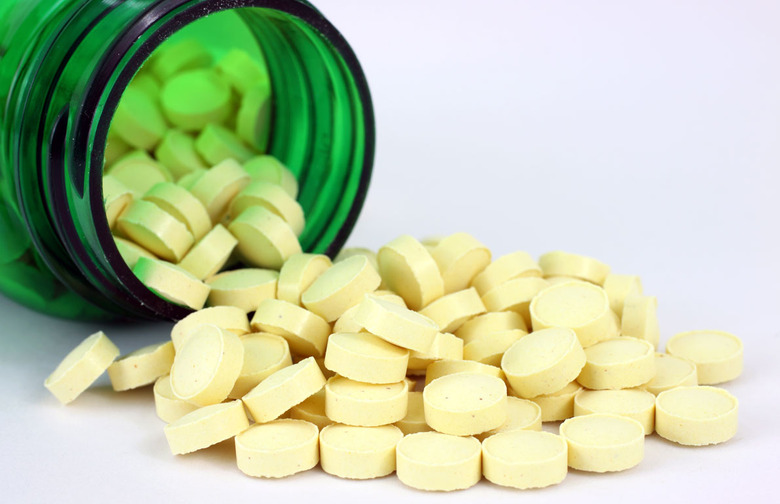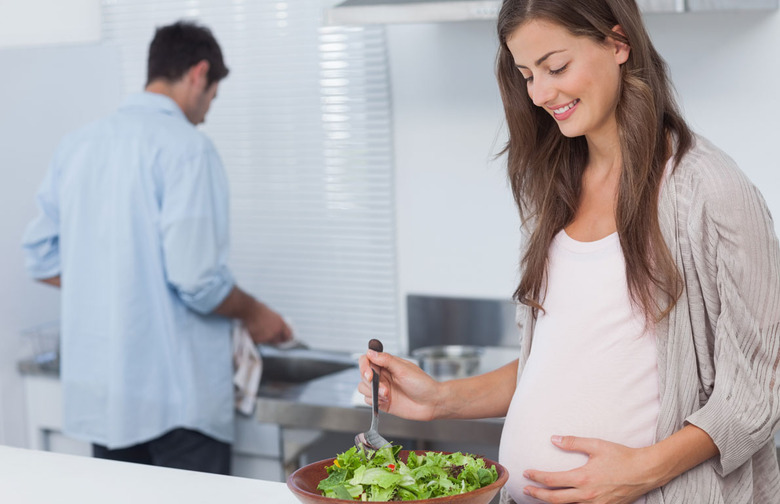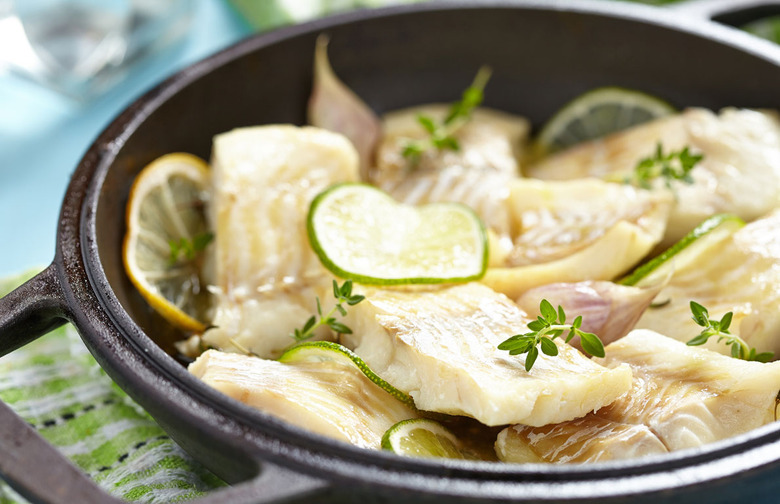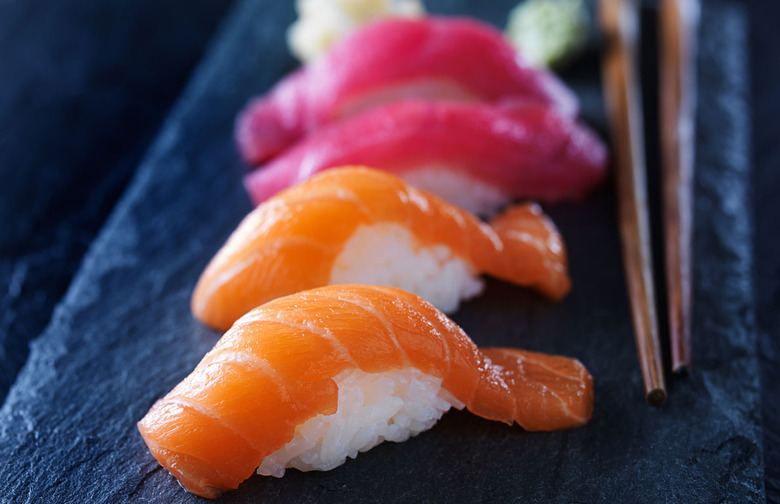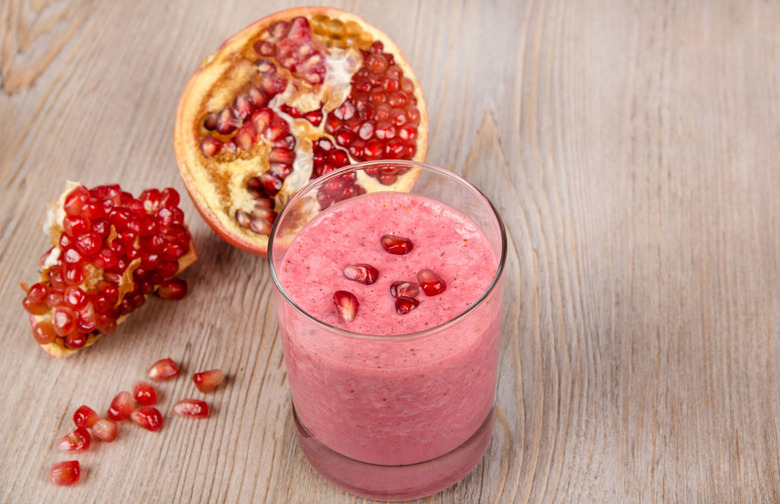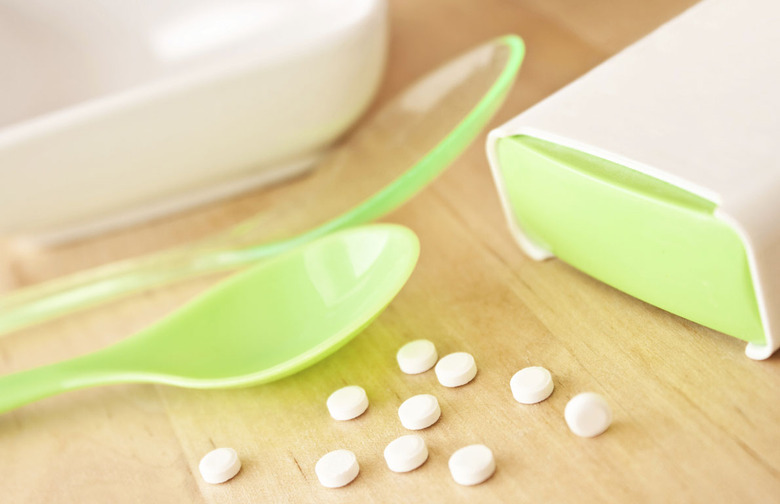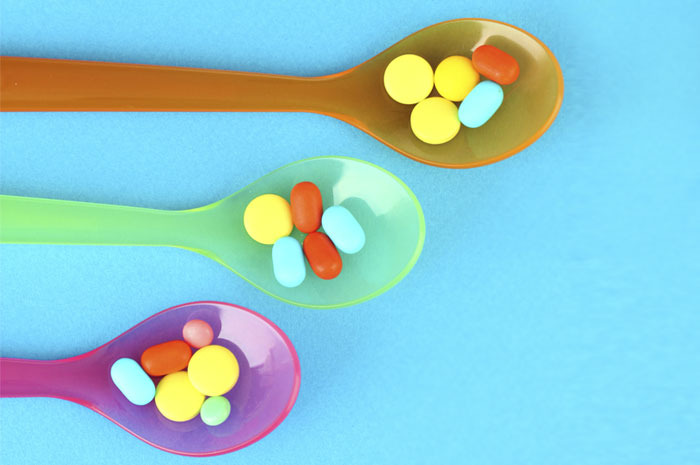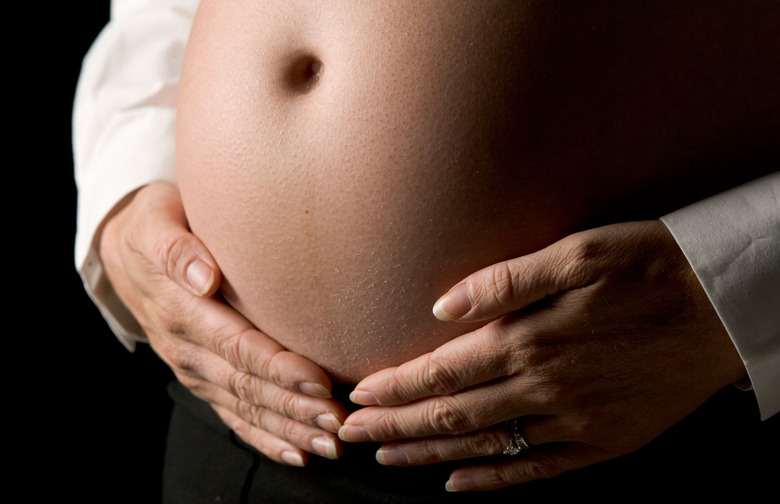How To Stay Healthy While You're Pregnant
Can pregnant women drink a cup of caffeinated coffee? Eat their favorite fish for dinner? Sprinkle a sugar substitute into their cereal?
It's tough knowing what's okay to eat and what should you avoid. Read on as maternity experts debunk some of the myths of pregnancy diets.
Avoiding Alcohol
A generation or two ago, moms-to-be smoked and drank a glass of wine now and then. But these days, cigarettes and booze are off-limits.
"Keep in mind that there is no amount of alcohol consumed during pregnancy that has been proven to be safe, and several studies have shown that heavy drinking can cause birth defects," explains Wolfberg. "I do not recommend women drink alcohol at all during pregnancy."
Be Colorful
Pregnant women need a lot of healthy variety in their meals and snacks.
"Put as much color on your plate as you can, with all different kinds of fruits and vegetables," says. Dolan. "Make half of your plate fruits and vegetables."
She also suggests pregnant women eat from the five basic food groups at every meal, including whole-grain bread and pasta, lean meats, low-fat or skim milk, and eight to 12 ounces of low-mercury fish each week.
Caffeine
Is a cup of coffee off-limits for moms-to-be? It used to be a no-no, but nowadays, moderate coffee consumption is okay.
"Pregnant women should not consume large quantities of caffeine," says Wolfberg. "New research suggests about 300 mg a day — or about two cups of coffee [is safe]."
Calcium
Don't underestimate your body's need for calcium, especially when you're pregnant. Calcium can be consumed in foods like broccoli and cheese and drinks such as milk, as well as from prenatal vitamins.
The ACOG recommends pregnant women aged 19 years and older, get at least 1,000 milligrams of calcium daily.
"Calcium helps the nervous, muscular, and circulatory systems stay healthy," says Dolan, noting that it keeps bones and teeth strong. "When a pregnant woman doesn't get enough calcium from the foods she eats, the body takes the calcium from her bones to give it to her growing baby."
A lack of calcium could have long-term consequences like osteoporosis, which causes bones to become fragile.
Folic Acid
Folic Acid, also called folate, is a modern-day pregnancy essential. It's a B vitamin that, according to the AGOC, "may help prevent major birth defects of the baby's brain and spine called neural tube defects."
Dolan says pregnant women need "600 micrograms of folic acid every day from food and supplements. Most prenatal vitamins contain 600–1,000 micrograms of folic acid."
Meal Plans
In the past, pregnant women were typically advised to eat three meals a day. But nowadays, doctors want their patients to eat less food, more frequently.
"Plan on eating four to six smaller meals a day instead of three bigger ones," says Dolan. "This can help relieve heartburn and discomfort you may feel as your baby gets bigger."
Mercury Risks
Many fish are good sources of omega-3 fatty acids, which are good for your baby's brain development. AOG recommends pregnant women eat at least two servings a week of fish with omega-3 fatty acids.
Still, eating fish can be risky.
"Some fish have high levels of mercury — shark, mackerel, tilefish and swordfish — and should not be eaten," advises Wolfberg, emphasizing that tuna should be eaten only in moderation.
Sayonara Sushi
Even if you're craving sushi, don't eat it if it's raw! Uncooked foods are a pregnancy no-no because they put you at risk for dangerous bacteria.
"Women should try to avoid any raw food, so that would include any raw sushi, anything with raw egg," Wolfberg warns.
Sugary Drinks
Having a smoothie or drinking a glass of juice is OK, right? Not necessarily anymore. That's because sugary drinks, desserts and other unhealthy foods are loaded with "empty calories that have few or no nutrients," states Dolan, who recommends replacing sugary soft drinks with water and seltzer.
Sugar Substitutes
Are sugar substitutes safe to use during pregnancy? Maybe. Maybe not.
"Acesulfame potassium (Ace-K), aspartame, saccharin, neotame, and sucralose are thought to be safe to eat in moderate amounts during pregnancy," explains Dolan.
Saccharin in particular could be troublesome though.
"Saccharin appears to cause bladder cancer in rats when ingested in high doses, but the Food and Drug Administration says humans are not in danger," says Dolan. "Saccharin does cross the placenta and can accumulate in your baby's body, so its use during pregnancy is controversial. The most cautious choice is to avoid it."
Vitamins
Doctors know pregnant patients can't always get all the nutrients they need from food alone.
"Taking prenatal vitamins help cover the nutritional gap in Mom's diet," says Wolfberg, noting, "The best vitamins and minerals go to baby first. Mom needs to take what she can get nutritionally and prenatal vitamins help ensure that baby and mom are covered."
Talk with your doctor about which supplements you should be taking.
"Some supplements are dangerous during pregnancy," Dolan cautions, noting large doses of healthy nutrients can be problematic, too.
"For instance, taking too much vitamin A during pregnancy can cause birth defects," she says. "Don't take more than 5,000 IUs of vitamin A per day."
Weight Gain
Pregnant women are eating for two, right? Not really. While a Mom's diet feeds her baby, that doesn't mean she can eat as much as she wants. Doctors used to give pregnant patients more leeway with weight gain. But not anymore. The American Congress of Obstetricians and Gynecologists (ACOG) advises women who were normal weight before pregnancy not to gain more than 25 to 35 pounds during pregnancy. Overweight and obese women are at risk for pregnancy problems, including high blood pressure, gestational diabetes, preeclampsia and preterm birth, and C-section delivery.
